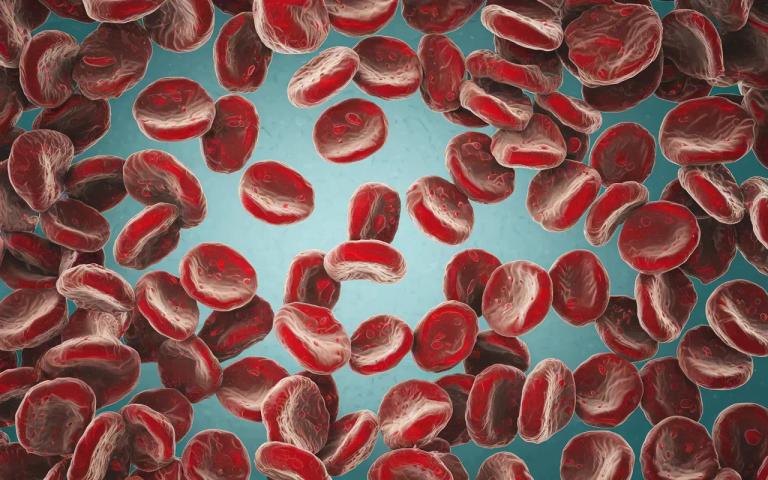Beyond tired: When fatigue might signal a deeper health concern
- Date:
- 21/02/2025
- Author:
- Maria Stringer

It starts the same way for so many of us. You wake up groggy, pressing snooze a few too many times before dragging yourself out of bed. By mid-morning, you’re on your second coffee just to keep up.
By the afternoon? The struggle to focus is real. And by evening, you barely have the energy to do anything beyond collapsing onto the sofa.
Sound familiar?
We live in a world where exhaustion is normalised. Hectic schedules, long workdays, family commitments, and endless to-do lists make tiredness feel inevitable. When we’re constantly on the go, it’s easy to blame lack of sleep or stress for our sluggishness.
But what if it’s more than just a busy lifestyle?
The exhaustion cycle: More than just a busy life
Ongoing fatigue that doesn’t improve with rest can be a sign of an underlying health issue—one that’s easy to overlook. Conditions like iron deficiency, an underactive thyroid, vitamin D deficiency, and hidden inflammation can all drain your energy without you realising.
Understanding these potential causes can help you take control of your health rather than accepting exhaustion as your daily norm.
So, let’s break it down. What’s really behind your fatigue?
1. Iron deficiency: When your blood isn’t carrying enough oxygen

One of the most common reasons for ongoing tiredness is iron deficiency—a condition that affects an estimated 1 in 3 women globally. Iron is essential for producing haemoglobin, the protein in red blood cells that carries oxygen around your body.
When iron levels drop, your cells don’t get enough oxygen, leaving you feeling weak, lightheaded, and constantly drained.
Signs that iron deficiency might be your issue:
- Fatigue that doesn’t improve with rest
- Pale skin and brittle nails
- Shortness of breath, even with mild activity
- Frequent headaches and dizziness
- Unusual cravings for non-food items
Iron deficiency can develop for a number of reasons—heavy periods, a vegetarian or vegan diet without enough iron-rich foods, pregnancy, or even underlying digestive conditions that impact absorption. If left untreated, it can lead to iron-deficiency anaemia, making fatigue even worse.
2. An underactive thyroid: The silent energy zapper
Your thyroid gland is responsible for keeping your metabolism running smoothly. It regulates everything from your energy levels and body temperature to your mood and digestion. But when the thyroid doesn’t produce enough thyroid-stimulating hormone (TSH), your entire system slows down—leading to persistent fatigue that feels impossible to shake.
Signs that your thyroid might be underactive:
- Constant tiredness, no matter how much sleep you get
- Unexplained weight gain
- Dry skin and thinning hair
- Feeling cold all the time
- Brain fog and difficulty concentrating
An underactive thyroid (hypothyroidism) is often overlooked because symptoms develop gradually. In the UK alone, 1 in 20 people have a thyroid disorder, many of whom remain undiagnosed.
3. Vitamin D deficiency: Low sunshine, low energy

Vitamin D is often called the "sunshine vitamin" because your body produces it when exposed to sunlight. But in the UK, where gloomy weather dominates much of the year, it’s estimated that more than 50% of people have insufficient levels.
Vitamin D plays a crucial role in bone health, immune function, and muscle strength, but one of the biggest warning signs of a deficiency is persistent fatigue and muscle weakness.
Signs that you might have low vitamin D:
- Unexplained tiredness
- Aching muscles and joints
- Frequent colds or infections
- Low mood or seasonal depression
Because so much of the population is affected, checking your vitamin D levels is a smart step if you're constantly tired.
4. Hidden inflammation: When your body is fighting something you can’t see
Inflammation is your body’s natural response to injury or infection—but when inflammation lingers without a clear cause, it can quietly drain your energy.
Chronic inflammation has been linked to conditions like autoimmune disorders, cardiovascular disease, and even persistent fatigue syndromes.
One way to detect hidden inflammation is by measuring C-reactive protein (CRP) levels in your blood. CRP is a protein produced by the liver when there’s inflammation in the body, even when you’re not aware of it.
Signs that chronic inflammation might be affecting your energy:
- Feeling fatigued without explanation
- Muscle aches and joint stiffness
- Frequent infections or slow wound healing
- Brain fog and difficulty concentrating
If you’re always exhausted and suspect underlying inflammation, a CRP test could provide valuable insight into whether your body is fighting an invisible battle.
Fact finding for four fatigue factors

Feeling constantly exhausted but unsure why? Instead of guessing, testing key markers in your body can help pinpoint what’s really going on.
That’s why we offer a Fatigue Tests Bundle, which includes:
✔️ Iron Deficiency (Ferritin) Test – Checks for low iron stores, a common cause of fatigue
✔️ Underactive Thyroid (FSH) Test – Screens for an underactive thyroid, which slows metabolism
✔️ Vitamin D Test – Measures vitamin D levels, crucial for energy and immunity
✔️ C-Reactive Protein Test – Identifies hidden inflammation, a possible fatigue trigger
Each test is simple to use at home, delivering results in minutes so you can take the next steps towards feeling more energised and in control of your health.
You don’t have to live with unexplained fatigue
Tiredness might be common, but that doesn’t mean it should be ignored. If you’re constantly battling exhaustion that sleep and caffeine won’t fix, your body could be trying to tell you something important.
Instead of writing it off as "just life", consider looking deeper. Low iron, thyroid issues, vitamin D deficiency, and inflammation are all potential culprits behind persistent fatigue—and the good news is, they can be identified and managed.
By understanding what’s really causing your tiredness, you can start taking steps to restore your energy, feel better, and take control of your health.
ProductsProducts featured in this blog
View all kits
- Bundles
- At-home tests
Fatigue Tests Bundle – 4 Home Rapid Health Tests
£35.00£39.50Vitamin D Rapid Home Test Kit
£8.00£9.60

